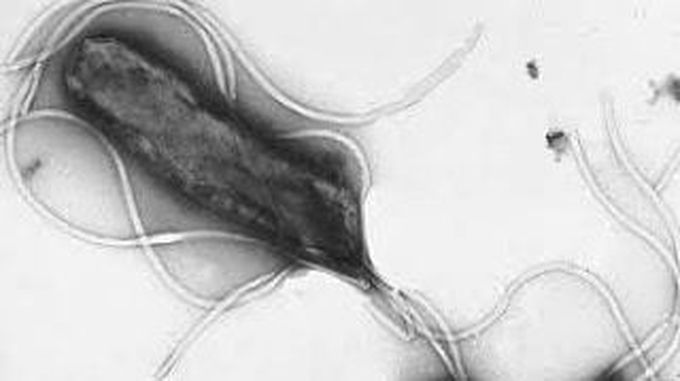


Helicobacter pylori
Helicobacter pylori, is a Gram-negative, microaerophilic bacterium usually found in the stomach. It was identified in 1982 by Australian scientists Barry Marshall and Robin Warren, who found that it was present in a person with chronic gastritis and gastric ulcers, conditions not previously believed to have a microbial cause.it is also linked to the development of duodenal ulcers and stomach cancer. However, over 80% of individuals infected with the bacterium are asymptomatic, and it may play an important role in the natural stomach ecology Acute infection may appear as an acute gastritis with abdominal pain(stomach ache) or nausea. Where this develops into chronic gastritis, the symptoms, if present, are often those of nonulcer dyspepsia: stomach pains, nausea, bloating, belching, and sometimes vomiting or black stool.

